Ever wondered what the must-read Mathematics books are? Here is our take.
This article gives you the best books for getting smart with mathematics.
These books cover various topics, from algebraic geometry, elementary number theory, mathematical analysis, applied linear algebra, and modern number theory to measure theory.
This list helps researchers tucked away in their daily grind develop their next breakthrough idea.
For a layperson, this helps you become a well-read lifetime learner.
We hope these books will help you in your course.
Table of Contents
Best Mathematics Books
- Zero: The Biography of a Dangerous Idea [Get the book]
- Answers to Contemporary Abstract Algebra [Get the book]
- The Joy of X [Get the book]
- Things to Make and Do in the Fourth Dimensions [Get the book]
- Calculus Made Easy [Get the book]
- Imagining Numbers [Get the book]
- Sacred Mathematics [Get the book]
- The Princeton Companion to Mathematics [Get the book]
- Mathematics: From the Birth of Numbers [Get the book]
- Introduction to Mathematical Thought [Get the book]
- Zero to Infinity [Get the book]
- A Mind for Numbers [Get the book]
- Classic Set Theory [Get the book]
- Introductory Statistics [Get the book]
- The Ten Equations that Rule the World [Get the book]
Zero: The Biography of a Dangerous Idea by Charles Seife
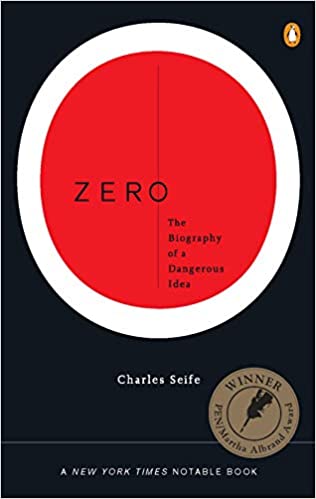
Intro-Why you should read it
This book discusses the mathematical logic of a single number with a section on world history that appeals to many students.
Summary-What this book is about
A Science Journalist Charles Seife explores zero, its origin, the journey to its acceptance, and the threat it offers to contemporary physics.
The author also features snippets of the celebrated thinkers’ views on the number, from Pythagoras, Newton, Heisenberg, and Kabalists to modern astrophysics.
Key Takeaways
- Zero is an exciting read as it doesn’t have too many equations as mathematics textbooks.
- Charles Seife utilizes a fun writing style to discuss the value of zero. You should be ready to learn the concept of zero to physics as this topic makes the second section of the book.
Answers to Contemporary Abstract Algebra by Joseph Gallian
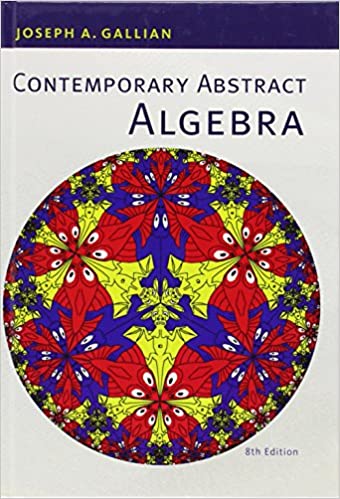
Intro-Why you should read it
Answers to Contemporary Abstract Algebra, 7th edition discusses abstract algebra’s fundamentals.
Joseph Gallian’s writing style is inviting, detailed, and clear, making this book a good start for students looking to learn mathematics.
Summary-What this book is about
This book emphasizes readability to offer a firm algebra foundation to beginner-level mathematics students.
With several excellently worked-out examples, this book is a must-have for teaching assistants and students alike.
Key Takeaways
- Gallian uses examples, tables, charts, photographs, and biographies to enhance learning, but the examples sometimes don’t offer the complete answer.
- The book is accessible and readable. Gallian limits the usage of jargon, making his book a perfect introductory text.
- Answers to Contemporary Abstract Algebra come with practical exercises and hints to help you learn better.
The Joy of X by Steven Strogatz
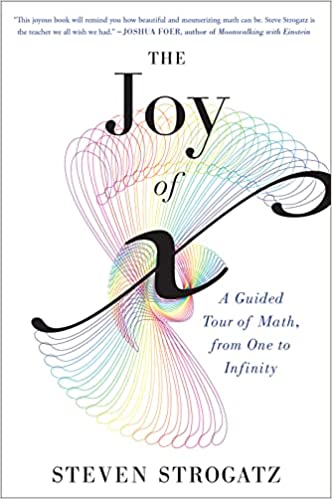
Intro-Why you should read it
The Joy of X introduces readers to the world of mathematics from a simple approach.
Summary-What this book is about
The book features short chapters to discuss the fundamentals of mathematics, making it an engaging read.
Steven Strogatz explores the application of mathematics concepts to medicine, business, philosophy, law, art, and pop culture.
Key Takeaways
- This book is a straightforward read for beginners, but readers with a background in mathematics will understand its content faster.
- The Joy of X explains math concepts and their real-life applications in a student-friendly approach.
Things to Make and Do in the Fourth Dimensions by Matt Parker
Intro-Why you should read it
Matt Parker combines a clear writing style with fun to teach mathematics students across all levels.
Things to Make and Do in Fourth Dimensions has several chapters, each focusing on a single area of mathematics.
Summary-What this book is about
The book covers knot theory, optimization algorithms, prime numbers, mathematical concepts of barcodes, iPhone screens, and other abstract concepts.
The authors utilize real-world examples to highlight the fundamentals of mathematics.
Key Takeaways
- This amazing book has a unique concept for everyone, including graduate-level mathematics students.
- Mark Parker’s wit makes learning complex mathematics concepts enjoyable.
Calculus Made Easy by Silvanus Thompson

Intro-Why you should read it
This straightforward book is good calculus reference material for beginner-level calculus students.
Summary-What this book about
Silvanus Thompson combines clarity with a simple publication language to take readers through calculus.
This book is not your ordinary textbook. Thompson explains calculus in the simplest form that appeals to all students interested in calculus.
Key Takeaways
- This book features an excellent writing style, making it one of the best mathematics books on the subject.
- Calculus Made Easy is up-to-date, reflecting modern calculus concepts.
- While this book highlights key calculus principles, some of the notations may be strange to A-level students.
Imagining Numbers: Particularly the square root of minus fifteen by Barry Mazur

Intro-Why you should read it
This book is for you if you are looking to learn about imaginary numbers.
Summary-What this book is about
Mr. Mazur begins his text with the fundamentals. Then proceeds to deeper coverage of negative numbers before finishing with the beauty of such numbers.
Key Takeaways
- This book describes imaginary numbers and their applications to real life.
- The author uses algebra, triangles, number lines, and tools suitable for all-level mathematics students.
- Barry Mazur shifts from math to poems between sections, breaking the boredom from the math symbols.
Sacred Mathematics: Japanese Temple Geometry by Tony Rothman and Fukagawa Hidetoshi
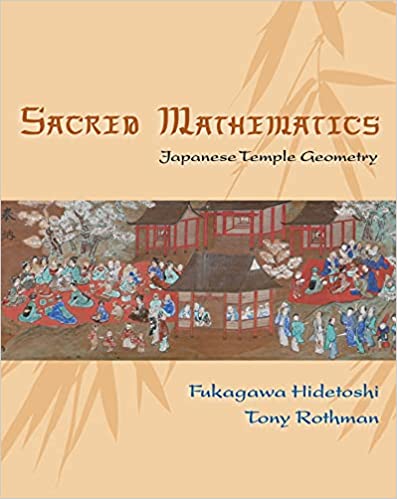
Intro-Why you should read it
You’ll learn geometry from the Japanese approach to the subject using puzzles developed before western influence.
The Japanese applied top-notch creativity and mathematical concepts to create these geometrical puzzles.
Summary-What this book is about
Rothman and Hidetoshi offer a compelling tale about Sangaku puzzles’ history.
The authors beautifully introduce readers to the Sangakus mathematicians while exploring the unique Japanese culture.
Key Takeaways
- A leading expert in sangaku-Mr Fukagawa Hidetoshi provides a detailed discussion of temple geometry student-friendly.
- This book is a happy read. It boasts beautiful graphics, clear mathematical concepts, and top-notch production quality.
- Sacred Mathematics offers students a unique approach to geometry, but learners may find it a little disappointing as the authors only single out problems to solve.
The Princeton Companion to Mathematics by Imre Leader, Timothy Gowers, and June Barrow-Green

Intro-Why you should read it
The Princeton Companion to Mathematics offers readers an extensive coverage of mathematics topics.
This reference book is a must-have mathematics encyclopedia for math students and professionals.
Summary-What this book is about
The Princeton Companion to Mathematics covers linear algebra, elementary number theory, modern analysis, logic, algebraic geometry, probability theory, algebraic number theory, and complex analysis.
Key Takeaways
- Other than mathematical concepts, this book includes a section on more than 95 influential mathematicians.
- The Princeton Companion to Mathematics features an excellent writing style but lacks exercises to enhance learning.
Mathematics: From the Birth of Numbers by Jan Gullberg
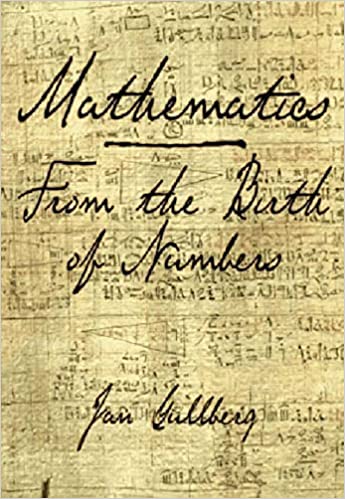
Intro-Why you should read it
Jan Gullberg’s book explores the origins of mathematics, discussing the subject’s history and pressing questions.
Summary-What this book is about
A doctor, Gullberg offers readers an extensive coverage of mathematics concepts.
Mathematics takes readers on a tour from language and numbers via algebra, trigonometry, geometry, differential equations, set theory, calculus, logic to probability theory.
This book shows the author’s enthusiasm and love for mathematics.
Key Takeaways
- This single-volume textbook does well in explaining core mathematics concepts, but it lacks depth.
- Mathematics is a must-have material on the subject. The simple terms make it one of the best mathematics books for undergraduate students.
Introduction to Mathematical Thought by Keith Devlin
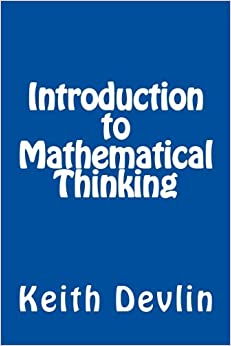
Intro-Why you should read it
Keith Devlin’s Introduction to Mathematical Thought is a good book for students looking to learn a unique approach to thinking.
We recommend this book to anyone who wants an intuitive understanding of logic, set theory, and other challenging mathematics concepts.
Summary-What this book is about
Keith wrote Introduction to Mathematical Thought with the intent of helping students make the transition from doing the math to thinking about it, and it does so exceptionally well.
Key Takeaways
- This book offers a bridge between high school and college mathematics.
- The author explains math as a calculation tool but a means of communication.
Zero to Infinity: A History of Numbers by Edward Burger
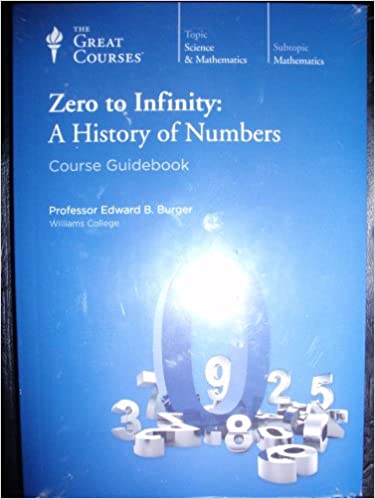
Intro-Why you should read it
Zero to Infinity: A History of Numbers is a perfect read for every mathematics student and enthusiast looking for a comprehensive introduction to the topic.
Summary-What this book is about
In this book, Edward Burger discusses numbers, their history, and their influence on human thinking in a simple but engaging way.
Key Takeaways
- This book offers the perfect refresher course on math concepts.
- The author’s straightforward writing style makes Zero to Infinity a good read for lay readers.
- This book is also available in DVD format to students who prefer watching to reading.
A Mind for Numbers: How to Excel at Math and Science (Even if You Flunked Algebra) by Barbara Oakley

Intro-Why you should read it
A Mind for Numbers is a must-read for you if you get nervous around numbers or feel like skipping maths classes.
Summary-What this book is about
This book results from years of teaching experience and a deep desire to share Barbara Oakley’s methods for turning advanced mathematics into engaging learning experiences.
In this book, Oakley provides tips on approaching science and maths as if they are puzzles.
Key Takeaways
- A Mind for Numbers offers you the study skills you need to ace your exams.
- Her infusion of stories and illustrations enhances learning.
Classic Set Theory for Guided Independent Study by Derek Goldrei
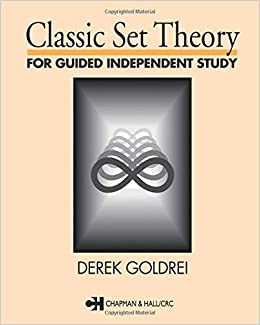
Intro-Why you should read it
This book provides a classical introduction to set theory, making it perfect for your self-study.
Summary-What this book is about
Derek Goldrei’s book combines practice exercises, examples, commentaries, and recommendations for each chapter to offer better learning experiences to students.
Key Takeaways
- Classic Theory book features an authoritative writing style to give detailed coverage of set theory.
- Derek Goldrei’s book is one of the best math books for students looking to learn more about considering Venn Diagrams.
Introductory Statistics by Neil Weiss
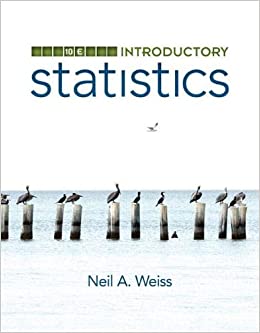
Intro-Why you should read it
Introductory Statistics is for you if you are having trouble understanding statistics.
Summary-What this book is about
Weiss’s primary goal is to describe each statistical idea in a simple enough way for entry-level students to understand.
The author incorporates practice exercises and data sets into the book to give readers a comprehensive discussion of statistics.
Key Takeaways
- This book explains numerous ways to tackle statistics problems but doesn’t provide examples that students can follow.
- The physical quality of the book is good, but the misprints make it a bit unreliable.
The Ten Equations that Rule the World: And How You Can Use Them Too by David Sumpter
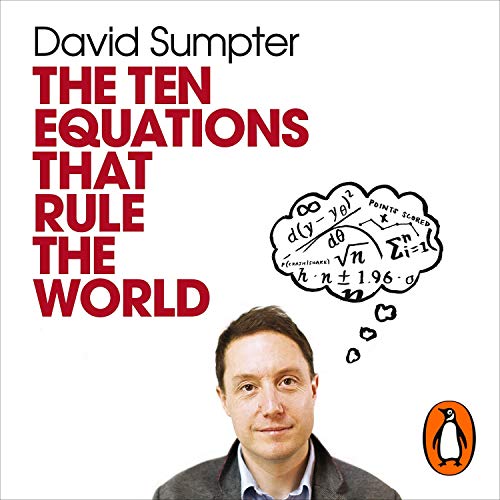
Intro-Why you should read it
David Sumpter demonstrates ten formulae governing betting, sports, technology, social media, and many of today’s sectors.
Summary-What this book is about
In The Ten Equations that Rule The World, David Sumpter combines clarity and wit to explore the ten formulae holding the world together.
Key Takeaways
- This book is quite informative. It’s not as dry as a textbook, but you’ll find some sections a bit boring.
- A beginner-level mathematics student may struggle to understand the complex concepts in David Sumpter’s book.
Conclusion
The list above should hopefully give you some helpful suggestions for adding more great math books to your library.
Of course, they’re in no particular order and will appeal to a number of different individuals.
We hope you’ll find at least a couple of them interesting and informative.


